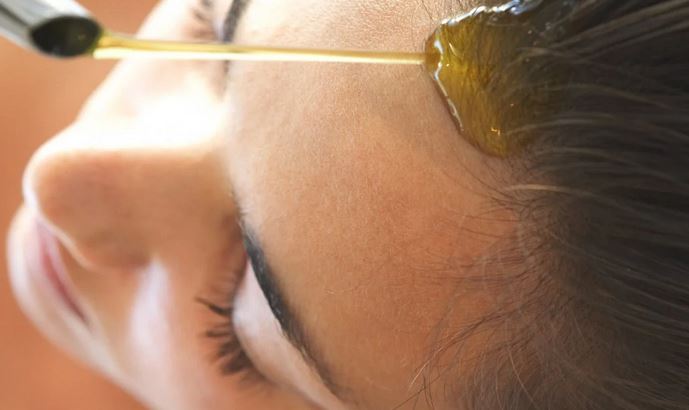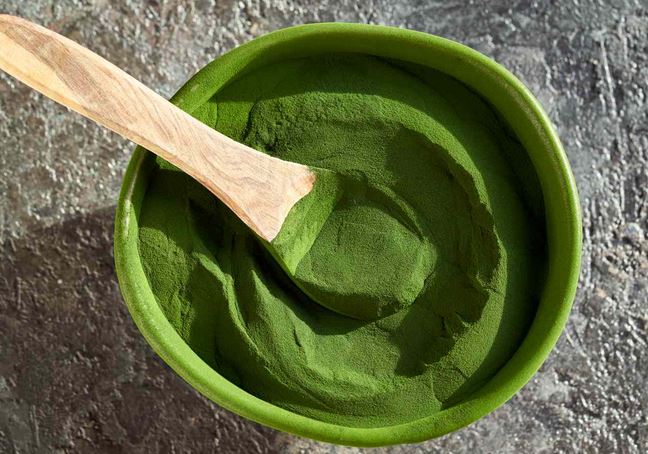Natural Remedies for Sensitive Scalp | |

| |
Having a sensitive scalp can be a challenging and uncomfortable experience. It can lead to itching, redness, flaking, and overall scalp discomfort. While there are various factors that can contribute to a sensitive scalp, there are also natural remedies that can help soothe and alleviate these symptoms. In this article, we will explore effective natural remedies for a sensitive scalp to promote a healthier and more comfortable scalp environment. Understanding a Sensitive ScalpA sensitive scalp is characterized by heightened reactivity and sensitivity to external stimuli. Common symptoms of a sensitive scalp include itching, irritation, dryness, redness, and dandruff-like flakes. It can be caused by various factors such as dryness, allergic reactions, scalp conditions, or the use of harsh hair care products. The Benefits of Natural RemediesNatural remedies for a sensitive scalp offer several benefits. Firstly, they are often gentler on the scalp compared to products containing harsh chemicals. Natural ingredients can help soothe inflammation, provide hydration, and restore balance to the scalp. Additionally, natural remedies are generally more sustainable and environmentally friendly, as they are free from synthetic additives and potentially harmful ingredients. Natural Remedies for a Sensitive ScalpLet's explore some effective natural remedies that can help alleviate scalp sensitivity: 1. Aloe VeraAloe vera has soothing and cooling properties that can provide relief to a sensitive scalp. Apply fresh aloe vera gel directly to the scalp and gently massage it in. Leave it on for about 30 minutes before rinsing with lukewarm water. Aloe vera helps calm inflammation, reduce itchiness, and hydrate the scalp. 2. Coconut OilCoconut oil is known for its moisturizing and nourishing properties. Gently warm some coconut oil and massage it into your scalp. Leave it on for a few hours or overnight before rinsing it out. Coconut oil helps hydrate and soothe the scalp, reducing dryness and irritation. 3. Tea Tree OilTea tree oil has natural antimicrobial and anti-inflammatory properties, making it effective in managing scalp conditions and soothing a sensitive scalp. Dilute a few drops of tea tree oil in a carrier oil, such as coconut oil or jojoba oil, and massage it into the scalp. Leave it on for 15-20 minutes before rinsing. Be cautious with the concentration of tea tree oil, as it can be potent and may cause irritation if used undiluted. 4. Apple Cider VinegarApple cider vinegar can help restore the pH balance of the scalp and alleviate scalp irritation. Mix equal parts of apple cider vinegar and water, and use it as a final rinse after shampooing your hair. Gently massage it into the scalp, then rinse with lukewarm water. Apple cider vinegar can help reduce itchiness, balance scalp oils, and remove buildup from the hair and scalp. 5. Chamomile Tea RinseChamomile tea has soothing and anti-inflammatory properties, making it beneficial for a sensitive scalp. Brew a cup of chamomile tea, allow it to cool, and use it as a rinse after shampooing. Pour the tea over your scalp, massage it in, and leave it on for a few minutes before rinsing with water. Chamomile tea can help calm irritation, reduce redness, and promote a healthy scalp environment. 6. Jojoba OilJojoba oil closely resembles the natural oils produced by the scalp, making itan excellent choice for soothing a sensitive scalp. Massage a few drops of jojoba oil onto your scalp and leave it on for a few hours or overnight. Jojoba oil helps moisturize the scalp, reduce inflammation, and restore balance. Frequently Asked Questions (FAQs)Q1: How often should I use these natural remedies? A: The frequency of use depends on the severity of your scalp sensitivity and your individual needs. It's best to start with once or twice a week and adjust as necessary. Pay attention to how your scalp responds and make any necessary changes to the frequency of use. Q2: Can I use multiple natural remedies together? A: Yes, you can combine different natural remedies to create a customized scalp treatment. However, be cautious and test each remedy individually to ensure there are no adverse reactions or allergies. Dilute essential oils properly and use carrier oils to avoid direct contact with the scalp. Q3: Are these natural remedies suitable for all hair types? A: Yes, these natural remedies are generally suitable for all hair types. However, it's important to consider any specific allergies or sensitivities you may have. Perform a patch test before applying any new remedy to your scalp and discontinue use if you experience any adverse reactions. Q4: How long does it take to see results with natural remedies? A: The time it takes to see results may vary depending on the severity of your scalp sensitivity and the consistency of use. Some individuals may notice improvements within a few applications, while others may require several weeks of consistent use. Be patient and give your scalp time to respond to the natural remedies. Q5: Can I use these natural remedies if I have a scalp condition? A: While these natural remedies can provide relief for a sensitive scalp, it's important to consult with a dermatologist or healthcare professional if you have an underlying scalp condition. They can provide guidance and recommend appropriate treatments based on your specific condition. Q6: Can I use these natural remedies as a preventive measure even if I don't have a sensitive scalp? A: Absolutely! These natural remedies can be used as preventive measures to maintain a healthy scalp even if you don't currently have scalp sensitivity. Incorporating them into your hair care routine can help promote a balanced scalp environment and reduce the risk of scalp irritation in the future. ConclusionDealing with a sensitive scalp can be uncomfortable, but natural remedies can provide relief and promote a healthier scalp environment. Aloe vera, coconut oil, tea tree oil, apple cider vinegar, chamomile tea, and jojoba oil are effective options to soothe and nourish your scalp. Experiment with these natural remedies to find the ones that work best for you. Remember to be consistent and patient, allowing time for the natural remedies to take effect. Embrace the power of nature and achieve a more comfortable and balanced scalp. | |
| Category: Hair Care | |
| Total comments: 0 | |
 |
| Festive Holiday Makeup Ideas: Sparkle and Shine |
 |
| Choosing the Right Hair Brush for Your Hair Type |
 |
| Tips for achieving work-life balance |
 |
| Beauty treatments to try for a pampering self-care session |
 |
| Achieving the Perfect Cat Eye with Gel Eyeliner |
 |
| How to Dress Your Dog in Style: Tips for Pet Fashion |
 |
| The benefits of practicing mindfulness in nature |
 |
| Essential Travel Makeup: Packing Light without Sacrificing Style |
 |
| How to Create a DIY Hair Care Routine at Home |
